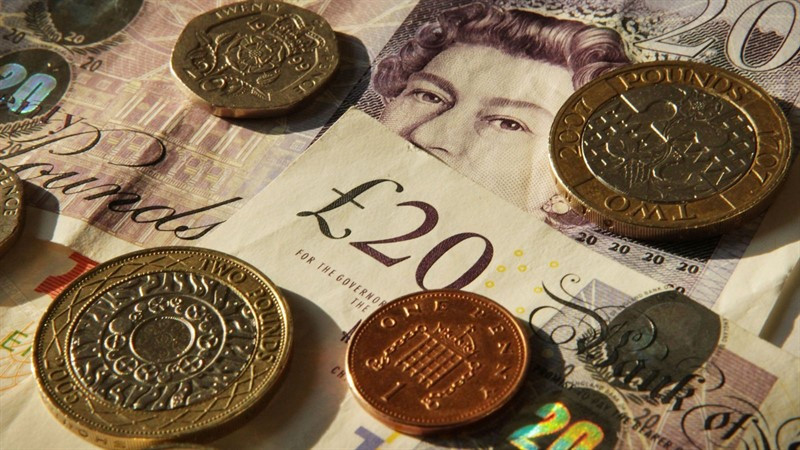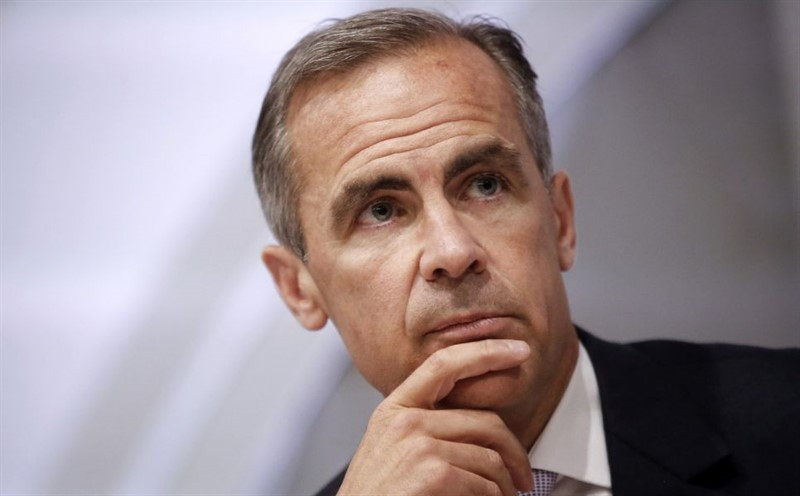
One of the most intriguing events of this week is undoubtedly the announcement of the results of the next meeting of the Bank of England on monetary policy.
The decision that the regulator must make on Thursday at the interest rate will probably be one of the most difficult for him in recent years.
The central bank will have to compare the disappointing indicators of economic growth at the end of last year and the first signs that the convincing victory of the Tories in the December parliamentary elections increased business confidence.
Two weeks ago, the chances of easing BoE's monetary policy this month were estimated at 70%, however, they declined to 45% after the release of positive reports on British business activity last Friday.
Earlier, BoE managing director Mark Carney said that the financial institution is ready to take appropriate measures if the British economy continues to show weakness. In addition, two members of the Bank of England's Monetary Policy Committee (MPC), Gertjan Vlieghe and Sylvanas Tenreiro, said they could support the rate cut if UK macroeconomic data did not improve. On the other hand, Michael Saunders and Jonathan Haskell have already voted for a rate cut at the December meeting. Thus, at least four out of nine MPC members can speak in favor of this decision on Thursday.
Today's meeting on the monetary policy of the Bank of England will be the last under the leadership of Mark Carney. On March 16, 2020, he will be replaced by Andrew Bailey, head of the British Financial Markets Authority (FCA).
So, will the interest rate cut become M. Carney's "swan" song, or will he decide to leave this decision to his successor? How will this affect the dynamics of the pound?

"Bank of England executives must wait and evaluate how the British economy will respond to the results of the early parliamentary elections and the events after Brexit," Royal Bank of Canada experts say.
According to experts, the decision of BoE to keep the rate at the current level may lead to an increase in the British currency.
"After the "dovish" statements of a number of Bank of England officials, market participants began to lay an increased likelihood of a rate cut, which puts pressure on the pound. If the rates still remain at the current level, then a reassessment of the future level of rates will occur, which will strengthen the position of the British currency," they noted.
Wells Fargo Securities and Canadian Imperial Bank of Commerce strategists also expect BoE to keep interest rates unchanged at 0.75%.
"Although the bell's alarm has already rung, we believe that the Bank of England will remain on standby this week, which suggests the possibility of some moderate short-term growth of the British currency," said Wells Fargo spokesman Eric Nelson.
"Recent BoE management comments show that the rhetoric of monetary policy makers is becoming more and more" dovecote, "but not enough to convince us that lower rates are inevitable. At the same time, we believe that the upcoming comments of the regulator will be "soft". Therefore, we do not expect strong growth of the pound or, at least, do not intend to chase after a possible rally of the currency. Its further strengthening will depend on economic data for the UK," he added.
"It seems that BoE will keep rates at the current level, so most likely, we will see a slight increase in the pound," said CIBC analyst Jeremy Stretch.
"Investors in the pound should look into the past to assess a possible reduction in interest rates or hints of a future easing of monetary policy by the Bank of England on Thursday," BMO Capital Markets said.
"Monetary policy is likely to occupy a central place, prevailing over fiscal, in economic policy until the end of 2020, when the United Kingdom and the European Union begin trade negotiations," said BMO strategist Stephen Gallo.
"We continue to recommend the purchase of GBP / USD if it falls below 1.30 and still believe that there is room for an additional EUR / GBP reduction over the next one to three months," he added.
At the same time, analysts at TD Securities predict that the Bank of England will cut interest rates by 25 basis points at a January meeting, since weak macro statistics at the end of 2019 led to lower forecasts for GDP and inflation.
"We believe that even if the Central Bank maintains the status quo in January, it will send a dovish message to the markets, leaving the door open to lower the interest rate in March. Under our base case scenario, the pound is at risk of minor bearish risks. However, the British currency can arrange a rally if BoE gives investors a "hawkish" surprise and excludes further interest rate cuts," the bank said.





















